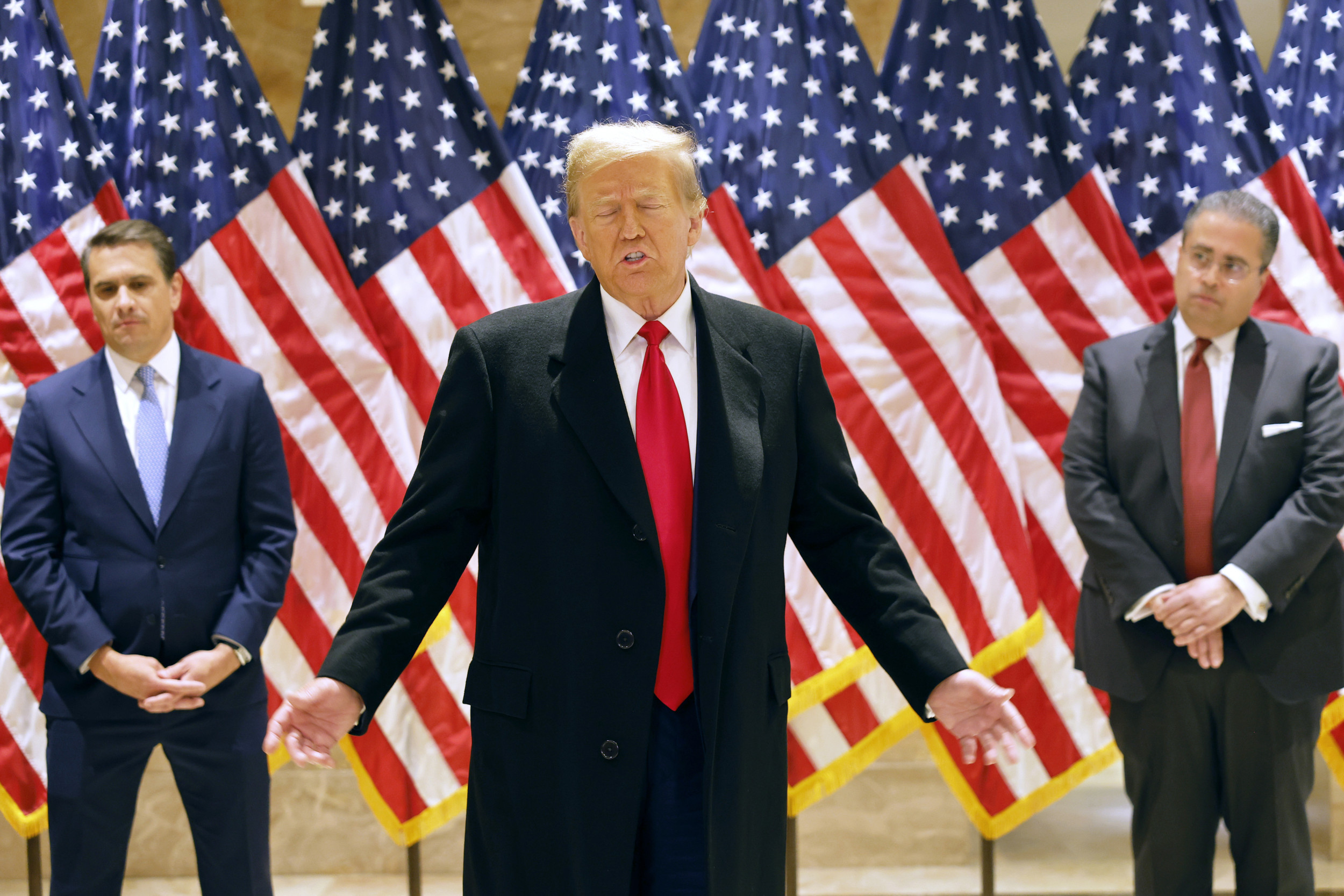Prosecutors could mount a legal challenge to the proposed jury instructions in Donald Trump‘s classified documents case, according to a legal commentator.
Roger Parloff, a senior editor at the legal website, Lawfare, wrote on X, formerly Twitter, that such challenges to jury instructions are unusual but have happened in the past.
On March 18, Judge Aileen Cannon, a Trump appointee, released proposed instructions to the jury that suggested that Trump may have had a legal right to declare presidential records as personal property after leaving office.
A judge’s instruction to the jury frames the issues they must consider before they consider a person’s guilt or innocence and are a vitally important part of the trial.
Trump is accused of illegally retaining classified documents, hoarding them at his Mar-a-Lago resort in Florida and obstructing federal officials’ attempt to retrieve them.
Newsweek reached out to Trump’s attorney for comment on Thursday.
Michael M. Santiago/Getty Images
Parloff’s post included a link to his own Lawfare article in which he wrote that prosecutors could challenge Cannon’s proposed jury instructions, but it wouldn’t be easy.
In the March 18 order, Cannon asked prosecutors and Trump’s lawyer to “engage with” her two prospective jury instructions about what it means to have “unauthorized possession,” of classified documents, per the wording of the charges against Trump.
Her second proposed instructions appear to suggest to the jury that they were permitted to consider the classified documents to be Trump’s personal items.
This wording would “require the jury to find that Trump, by the mere act of removing the documents to his home at the end of his term, had exercised unreviewable discretion to designate them as ‘personal’ under the Presidential Records Act,” Parloff wrote.
Prosecutors have long fought any suggestion that Trump was legally permitted to declare classified documents at his personal belongings and have said in previous court filings that such an interpretation of the Presidential Records Act is unlawful.
Parloff said that Cannon’s wording is “inviting or requiring jurors to acquit.”
“Her other proposed instruction was less shocking but still quite controversial; it called for the jury to decide whether the classified documents in question were “personal” under the Presidential Records Act,” Parloff wrote.
While this wording is not suggesting that Trump was exempt from scrutiny, it still suggests to the jury that they may consider classified documents as Trump’s personal items.
Parloff wrote that prosecutors cannot yet challenge Cannon’s jury instruction wording as they are merely suggestions.
However, he said that if Cannon “eventually did commit to delivering such an instruction, the government could challenge it”.
Parloff said he found six instances in which the government challenged jury instructions before they were delivered to the jury.
“In four of those instances, the petition succeeded. In two challenges—one successful, one not—the government brought the action after the jury had already been sworn in,” he wrote.
“At the same time, it should be stressed that all the successful challenges were spurred by truly extraordinary situations,” he added.
Parloff said that two of the successful challenges to jury instructions were handed down the same month and involved the same 89-year-old judge “who had begun issuing a ‘pattern of unreasonable and largely unexplained rulings,’ as one of the panels put it.”
Much of Trump’s case rests on whether he was allowed to retain presidential records.
Under the Presidential Records Act, which was implemented in the wake of President Richard Nixon’s Watergate scandal, all presidential documents must be sent to the National Archives and Records Administration [NARA] when the commander in chief leaves office, as they belong to the federal government.
If an outgoing president wishes to have their official documents publicly presented, such as in a library, they must seek permission from NARA, and the materials must remain under NARA custody.
The trial is scheduled for May 20, but Cannon is expected to postpone the start of proceedings in a future decision.
Uncommon Knowledge
Newsweek is committed to challenging conventional wisdom and finding connections in the search for common ground.
Newsweek is committed to challenging conventional wisdom and finding connections in the search for common ground.
